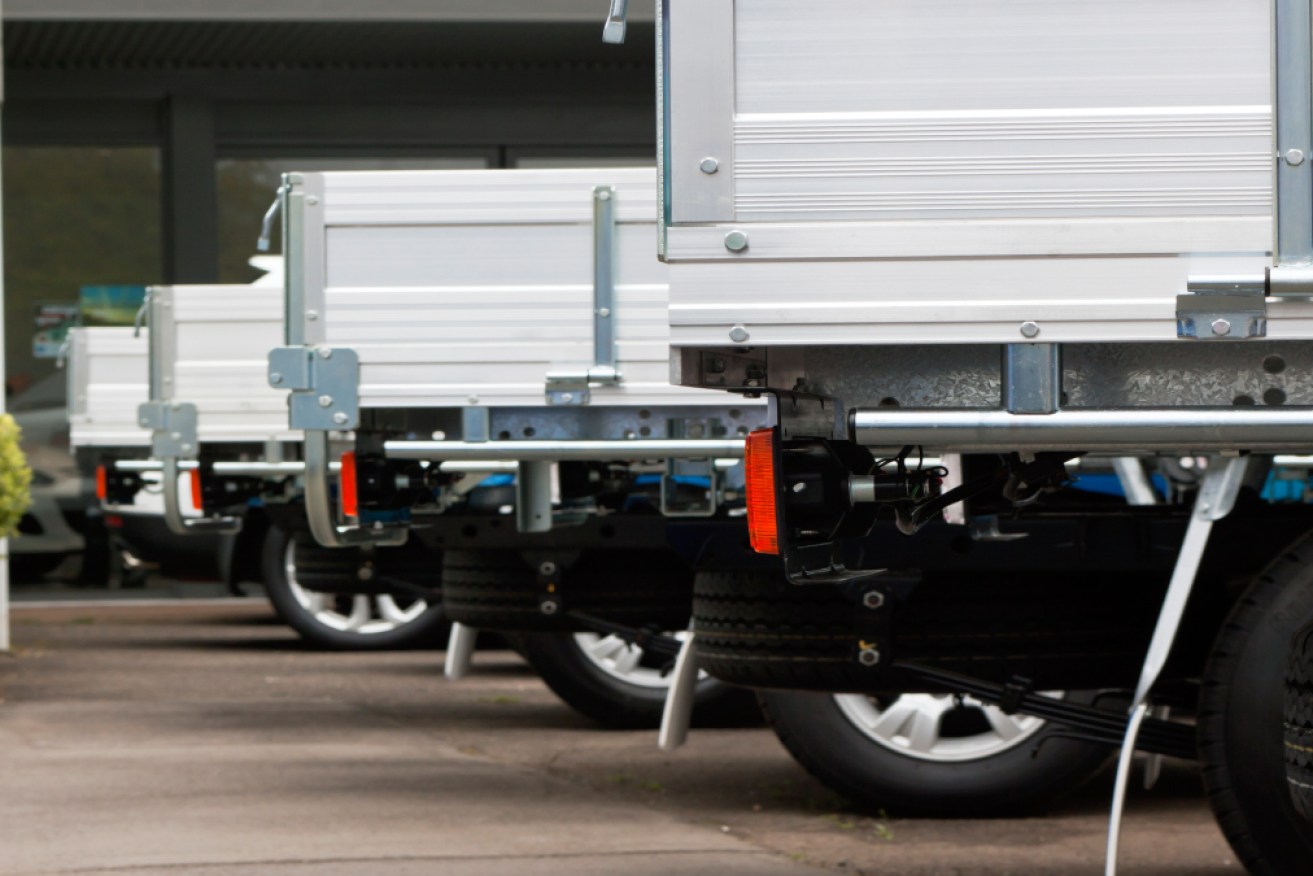Rising ute sales cause surge in carbon emissions


Aussies’ love for utes could throw a wrench in the country’s efforts to combat climate change. Photo: Getty
Aussies’ love for utes isn’t helping efforts to combat climate change, with the increasing popularity of the vehicles causing a rise in emissions.
In fact, emissions from light commercial vehicles rose by about 20 per cent from 2012 to 2020, according to a new report from the Climate Council, that includes government data.
The figures showed 14 megatonnes of carbon dioxide were released by utes in 2012, with 17 megatonnes released in 2020.
Sales have jumped from 16 per cent of new car sales in 2012 to 21 per cent in the year leading up to October 2022.
Climate experts say that unless we put the brakes on our passion for utes, emissions are expected to remain at the high level of 18 megatonnes per year from 2023 to the mid-2030s.
“Australia’s transport mix has to change – heavy, petrol-guzzling vehicles are bad for our budgets, our health and our environment,” climate councillor and former president of BP Australasia, Greg Bourne said.
EV and battery shortage
The situation is exacerbated by findings from the Federal Chamber of Automotive Industries (FCAI), which this week released a report revealing carbon emissions from heavy SUVs and light commercial vehicles, including utes, rose to 212.8 grams per kilometre in 2022, far exceeding the industry target of 189 grams.
FCAI chief executive Tony Weber said a lack of large electric vehicles, a shortage of batteries, and the absence of a national carbon emissions standard had contributed to rising pollution.
“Globally, there is currently a limited supply of batteries and supporting technology to meet the demand for all new vehicles,” he said.
“In particular, the bigger vehicles which a large proportion of Australians choose to buy.”

Ute owners from across Australia in Deniliquin for the annual Ute Muster, 2017. Photo: Getty
Top sellers
According to the Climate Council’s report, in the 12 months to October, more than 217,000 utes were sold in Australia, with the Toyota HiLux and Ford Ranger leading the pack as the most popular choices among buyers.
These two models have been the best-selling utes in Australia for seven years and have ranked first among all cars in the country.
The Toyota HiLux and Ford Ranger models account for more than 170,000 tonnes of CO2 and nearly $103.7 million in fuel costs for one year, and over 125,000 tonnes of CO2 and over $76 million in fuel costs, respectively.
The Nissan Navara is the most fuel efficient among Australia’s top-selling utes, with fuel costs and tailpipe CO2 emissions approximately 35 per cent lower than the highest polluting and most expensive-to-run ute, the Toyota LandCruiser.
Although electric utes are expected to become more available in the next few years, offering significant fuel savings and emissions reductions, Australians can choose more fuel-efficient models now.
The Climate Council said if all buyers of the top-selling utes in the 12 months to October had instead opted for the lowest emitting model, they would have collectively saved a total of $42 million in fuel costs and avoided more than 87,300 tonnes of CO2 emissions.
“Aussie ute drivers can save hundreds of dollars a year right now just by switching to the most fuel-efficient utes on the market. Those savings will rev up in the next few years as electric utes become more available,” Climate Council head of advocacy, Dr Jennifer Rayner said.
Need for fuel efficiency
Dr Rayner said the Federal Chamber of Automotive Industries report highlights why Australia needs strong, mandatory fuel efficiency standards.
“Car manufacturers set themselves a weak voluntary standard and still missed it by a mile last year for some types of vehicles,” she said.
“Aussie ute drivers can save hundreds of dollars a year right now just by switching to the most fuel-efficient utes on the market. Those savings will rev up in the next few years as electric utes become more available.
“Countries with strong fuel efficiency standards – like the EU, US and New Zealand – are already powering ahead with cheaper, cleaner utes. Australia is being left behind like a paddock basher bogged in the mud because manufacturers aren’t sending their best new vehicles here.”
A recent report published by Solar Citizens and based on ABS data found drivers could save a combined $11.2 billion on fuel over five years if Australia adopted a fuel efficiency standard similar to the European Union.
It also found that regional Australians would save a combined $4 billion over the same time frame.









